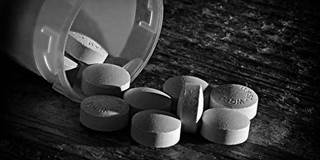The debate over access to affordable medicines in poor countries frequently overlooks a critical issue: Governments in these countries routinely slap tariffs and other taxes on pharmaceutical imports. While these measures tend to be modest revenue generators, they drive up medicine prices, harming many who need them most.
WASHINGTON, DC – The debate over access to affordable medicines in emerging and developing countries frequently overlooks a critical issue: Governments in these countries routinely slap tariffs and other taxes on vitally important drugs. While these measures tend to be modest revenue generators, they make the affected medicines more expensive, which can put them out of reach for many who need them most.
Like developed countries, emerging and developing countries import some – if not all – of their medicines, the cost of which is mainly covered by the patients themselves, given these countries’ lack of health insurance. Indians, for example, pay 70% of their health-care expenses out of their own pockets. With tariffs and other taxes increasing drug costs by as much as two-thirds in some areas, even the most basic generic drugs become unaffordable for the poorest people. As one research report on Delhi’s medicine market concluded, such levies are essentially a “tax on the sick” which the government could easily remove.
The story is similar in many emerging markets. According to a 2012 study by the World Trade Organization, Argentina, Brazil, India, and Russia impose tariffs of around 10% on imported medicines, while Algeria and Rwanda, for example, maintain a 15% rate. The tariff in Djibouti is 26%. As the report noted, it is difficult to understand why small countries maintain high tariffs on health products – a move that serves only to drive up domestic prices.

WASHINGTON, DC – The debate over access to affordable medicines in emerging and developing countries frequently overlooks a critical issue: Governments in these countries routinely slap tariffs and other taxes on vitally important drugs. While these measures tend to be modest revenue generators, they make the affected medicines more expensive, which can put them out of reach for many who need them most.
Like developed countries, emerging and developing countries import some – if not all – of their medicines, the cost of which is mainly covered by the patients themselves, given these countries’ lack of health insurance. Indians, for example, pay 70% of their health-care expenses out of their own pockets. With tariffs and other taxes increasing drug costs by as much as two-thirds in some areas, even the most basic generic drugs become unaffordable for the poorest people. As one research report on Delhi’s medicine market concluded, such levies are essentially a “tax on the sick” which the government could easily remove.
The story is similar in many emerging markets. According to a 2012 study by the World Trade Organization, Argentina, Brazil, India, and Russia impose tariffs of around 10% on imported medicines, while Algeria and Rwanda, for example, maintain a 15% rate. The tariff in Djibouti is 26%. As the report noted, it is difficult to understand why small countries maintain high tariffs on health products – a move that serves only to drive up domestic prices.